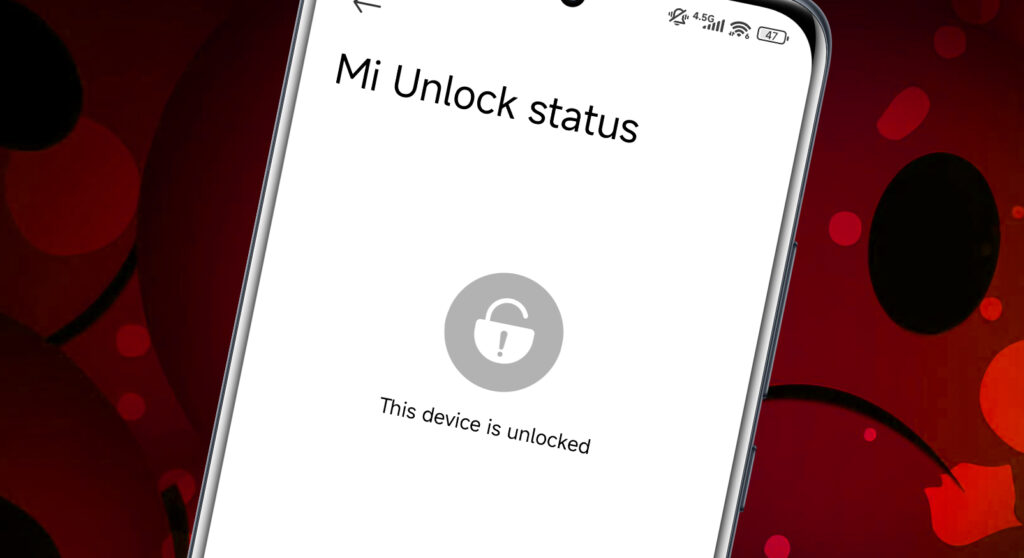August 1, 2025, is shaping up to be a pivotal date for the mobile industry. That’s when the European Union’s Radio Equipment Directive (RED) 2014/53/EU cybersecurity requirements officially take effect—directly impacting the long-standing openness that’s defined Android smartphones.
Just days ahead of the new rules, Samsung quietly removed the bootloader unlock feature in its OneUI 8 update. Clearly, they’re getting ahead of compliance. For Xiaomi, Google, and every other Android manufacturer that’s built their brands on flexibility, the message is clear: the landscape is changing, fast.
RED’s Cybersecurity Shift: What’s Actually Changing
In 2022, a new set of rules (delegated act 2022/30) brought cybersecurity front and center.
As of August 2025, manufacturers selling devices in the EU need to:
- Block the installation of unauthorized software
- Use Secure Boot (or similar) to verify firmware authenticity
- Ensure only signed and approved ROMs can run
The directive doesn’t name “bootloaders” specifically, but its demand for software authenticity basically makes bootloader unlocking—at least in its current form—a thing of the past.
Why Bootloaders Matter for Business and Users
The bootloader is the starting gate for any smartphone OS. For years, Android stood out by letting users—and even enterprise clients—unlock bootloaders, install custom ROMs, and tailor devices to unique needs. This flexibility has been a selling point, especially for power users and certain business verticals.
But RED’s new requirements mean:
- Every bit of firmware must be cryptographically signed
- Hardware and software must be validated together before startup
- Unapproved or altered ROMs are blocked by default
This sharply reduces user and enterprise control over device software—something that’s likely to impact both consumer satisfaction and niche business deployments.
Samsung’s Early Move: A Sign for the Whole Market
Samsung’s decision to disable bootloader unlocking in OneUI 8 wasn’t random. It was a strategic move, anticipating RED’s enforcement. Other manufacturers—Xiaomi, Google, and beyond—will need to follow to keep their devices certified for sale in Europe.
The pressure is on to:
- Maintain CE certification
- Guarantee firmware can’t be tampered with
- Realign policies to meet RED’s cybersecurity demands
Failing to comply isn’t an option for any brand that wants to keep a foothold in the EU market.
Is Android Becoming iOS?
There’s a real question here: is Android losing its edge? With RED’s rules, Android devices in Europe will look a lot more like iPhones, at least in terms of software control:
- Reduced flexibility: Rooting and custom ROMs could disappear for most users
- Increased security: Secure Boot offers more protection against malware at startup
- Greater vendor control: Only official firmware updates will be allowed
- Regional fragmentation: China and India may keep the old, open model—for now
For businesses, this shift could limit the ability to deploy specialized software or tailor devices for unique operational needs.
Xiaomi’s Likely Response
Xiaomi has built a reputation for flexibility, but RED compliance could force major changes:
- Xiaomi China already blocked bootloader unlock
- Bootloader unlocking will likely be removed from European models
- Global variants may face stricter policies in the EU than elsewhere
- Developer or enterprise-focused devices might get special exceptions
- Upcoming versions like HyperOS 3 may ship with Secure Boot and strict ROM validation
Given Xiaomi’s public stance on regulatory compliance, it’s almost certain they’ll align their European operations with Samsung’s new standard.
Xiaomi users stole their phones from the service center to unlock the bootloader
Bottom Line: A New Chapter for Android
RED isn’t just another technical update. It’s a significant shift in how Android devices will be sold, managed, and used in the EU.
- Bootloader unlock freedom is disappearing
- Custom ROM and root access may become a thing of the past
- Android devices in Europe are poised to resemble iOS in terms of control and restrictions
For most consumers, the upside is better security. For businesses and enthusiasts, it’s the end of an era of openness and customization—a trade-off that will shape the future of the Android ecosystem in Europe and, potentially, worldwide


 Emir Bardakçı
Emir Bardakçı


E.U. is just killing fun. First the car regulations and now this. They do this for “safety” and for the environment. There won’t be any internal combustion cars sold after 2035, which is sad. Also, this new regulation about phones isn’t good from one side, because you can’t download apps from Google, like Happymod. This shows that the E.U. doesn’t care about it’s residents. They do whatever they think is the best for all and that killing the fun things that we had.
It is necessary to consider the broader content.
This is not a random idea focused on better security. Its part of idea, where phones in EU will be much more controlled and deanonymized.
It will works well with chatcontrol 2.0, protectEU and so on. They do not want you degoogle your Phone, they do not want you root your Phone and bypass future controlling technologies.
Wtf EU…
UE is a disaster, increasingly totalitarian.
this article is ai and the law was in 2024
The EU should kiss all of us on the ass, mind their own business, since when and until they care about people’s security.What they do does not mean a better state of people, but rather the limitation or stopping of the human right to choose.a petition should be made against this rule to get things resolveda petition should be made against this rule to get things resolved
Whoever thought about this regulation obviously has no idea. An open bootloader is the only way to get software (read security) updates as soon as a device no longer receives official updates, thus being at risk or simply trash, even though the hardware is still working properly. I can’t wait for companies to stop releasing certain phones in the EU because of all this regulatory bs. Surely of those very popular european company will step up to sell their phones instead, oh wait… well maybe Nokia gets another chance lmao
This means that the ones that advise the european politicians are totaly unaware of cybersecurity.
They follow the proven totaly usafe model of a very popular vendor, micro…..
But they still considered spam calls legal.
This is clickbait. They’re only stopping devices from shipping with an unlocked bootloader, nothing to stop you from being able to unlock.
Are these EU bureaucrats writing regulations drunk on wine or something? First, they slap Apple with massive fines to force it to allow sideloading, and then they turn around and introduce new rules requiring radio equipment manufacturers to block the installation of “non-compliant software.” Now I finally understand why Europe’s consumer product industry has never really taken off — the regulatory chaos here is so bad that doing business in Europe is even harder than it was in the Soviet Union, which at least had the excuse of being a centrally planned economy hellbent on heavy industry.
While EU is definitely not perfect and some it’s bills contradict their focus on human rights of privacy and right to repair, this article is uninformed clickbait at best. I implore you to, please, do a bit of your own research, read the actual directive (directive 2014/53/EU and regulation 2022/30) before jumping into conclusions and sharing this article.
From my best attempts at understanding this, it only has to do with mechanism of verifying software for the wireless chips, which can be (and mostly already are) implemented without locking the bootloader. And even then, it doesn’t require those mechanisms to be impossible to disable, and there is a statement that directly reads that this shouldn’t be abused to restrict third party software on the device.
As such, I cannot find any link between Samsung’s bootloader lock, which is applied globally and potentially just because Samsung decided it on their own, and the the aforementioned directive.
Phone is a property of owner, avoid use ‘stole’ word. FCKeditor xiaomi, FCKeditor EU, FCKeditor UA
@TiredRabbit
I’ve piped both RED 2014/53/EU and Delegated Reg 2022/30 through chatgpt.
While they don’t literally say “ban bootloader unlock,” 2022/30 does require preventing unauthorized software via technical means — and if that’s easily bypassed, it won’t pass compliance.
In theory a vendor could limit this to modem firmware, but in practice it’s simpler and safer for them to lock the entire bootloader, which is exactly what most will do after Aug 2025.
This step is one on the way to have full control and monitoring on all smartphones/citizens in Europe! I’m not right but this is a result of left politicians to consolidate there power!! Think what they have done with us during Corona! Now they can also stop the conversation anytime! Normaly all citizens have to go on the streets and protesting against such a decision!
In EU there are legislations preventing mass surveillance for at least a decade. Most of the restrictions are from the Google side on the next Android iteration, which is still unavailable.
All of this article is a pile of crap, written (or generated) to trashtalk over EU, while the real issue are corporation trying to get ride of the Android openess. This is possible because of the number of users not thinking about their choices and using only what companies advertise to them.